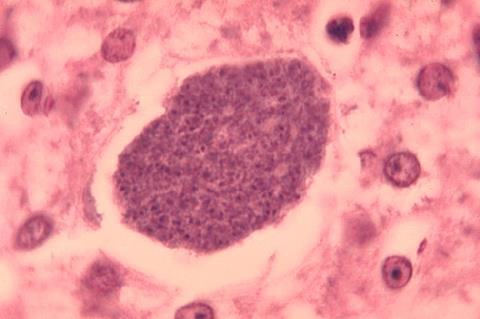Applied Microbiology International (AMI) has urged global policymakers to strengthen the revised Global Action Plan on Antimicrobial Resistance (GAP-AMR), calling for a more inclusive, clear and equitable approach to tackling one of the world’s most urgent health challenges.

The learned society warned that the updated GAP-AMR must go beyond bacterial and fungal pathogens to include all AMR-causing organisms, such as parasitic and viral pathogens. The call comes on World Antimicrobial Resistance Awareness Week (WAAW).
READ MORE: Demographic shifts could boost drug-resistant infections across Europe
READ MORE: Freshwater snails are an overlooked reservoir of AMR, study reveals
In its submission to the AMR Multi-Stakeholder Partnership Platform (MSPP) consultation, AMI brought together 15 microbiologists from around the world—including experts from the UK, India, Nepal, Thailand, the US, Sweden, Lebanon, and Germany—for a virtual roundtable discussion. The group represented diverse areas of expertise, spanning clinical and environmental microbiology, bioinformatics, and the intersection of inequalities and AMR.
The consultation comes as part of the ongoing revision of the Global Action Plan on antimicrobial resistance (AMR), which serves as a global guidebook for countries developing their National Action Plans. The revision was prompted by discussions at the 2024 UN General Assembly High-Level Meeting on AMR, highlighting renewed international commitment to addressing AMR.
Data is key
A central theme of AMI’s submission is the urgent need for greater capacity and infrastructure to collect, analyse, and store global data on the evolution of AMR. The organisation called for the development of accessible, standardised databases for nucleotide sequencing of AMR genes and vectors, enabling researchers and policymakers to identify global trends and respond effectively.
AMI also recommended expanding citizen science programmes to support data collection while fostering public engagement and trust in AMR strategies.
The group emphasised that the updated GAP-AMR must go beyond bacterial and fungal pathogens to include all AMR-causing organisms, such as parasitic and viral pathogens. While the plan should remain broad in coverage, national action plans must retain flexibility to focus on locally relevant threats.
Undue emphasis on behaviour
“This draft places undue emphasis on behavioural science and individual behaviour, overlooking the wider social and political systems that constrain people’s choices. Behavioural insights are important, but they must be balanced with attention to structural and systemic drivers of AMR,” the group warned.
“Moreover, the draft promotes awareness-raising as a tool for behaviour change, but there is little evidence this effectively engages new audiences; rather, it risks creating an echo chamber. Furthermore, capturing reliable data to highlight behaviour change is extremely difficult, limiting the utility of this approach.”
Regional collaboration was another key recommendation, recognising that neighbouring countries often share ecosystems, health systems, and trade routes. Coordinated regional strategies would strengthen national efforts and improve global impact.
Clearer accountability
The submission also called for clearer accountability mechanisms for implementing national action plans. Responsibility for NAP delivery can highly vary with governments, NGOs and foundations all playing a role. This variation, which is particularly prominent in LMIC’s, needs clear accountability systems to enable long-term delivery.
An overemphasis on LMIC’s (Low and Middle Income Countries) as ‘problem’ geographies also needs addressing through a more equitable approach that recognises the responsibility of the international community in addressing the borderless nature of AMR.
To find out more about getting involved in our policy work, email us at policy@appliedmicrobiology.org.







No comments yet